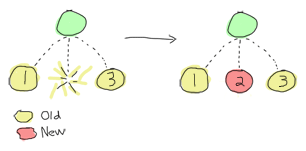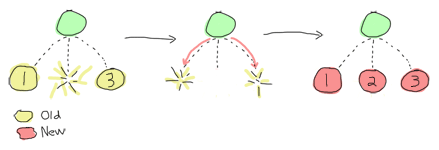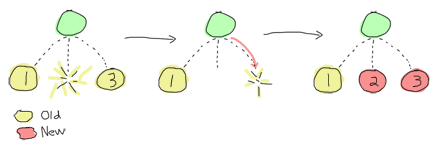1 2 3 4 5 6 7 8 9 10 11 12 13 14 15 16 17 18 19 20 21 22 23 24 25 26 27 28 29 30 31 32 33 34 35 36 37 38 39 40 41 42 43 44 45 46 47 48 49 50 51 52 53 54 55 56 57 58 59 60 61 62 63 64 65 66 67 68 69 70 71 72 73 74 75 76 77 78 79 80 81 82 83 84 85 86 87 88 89 90 91 92 93 94 95 96 97 98 99 100 101 102 103 104 105 106 107 108 109 110 111 112 113 114 115 116 117 118 119 120 121 122 123 124 125 126 127 128 129 130 131 132 133 134 135 136 137 138 139 140 141 142 143 144 145 146 147 148 149 150 151 152 153 154 155 156 157 158 159 160 161 162 163 164 165 166 167 168 169 170 171 172 173 174 175 176 177 178 179 180 181 182 183 184 185 186 187 188 189 190 191 192 193 194 195 196 197 198 199 200 201 202 203 204 205 206 207 208 209 210 211 212 213 214 215 216 217 218 219 220 221 222 223 224 225 226 227 228 229 230 231 232 233 234 235 236 237 238 239 240 241 242 243 244 245 246 247 248 249 250 251 252 253 254 255 256 257 258 259 260 261 262 263 264 265 266 267 268 269 270 271 272 273 274 275 276 277 278 279 280 281 282 283 284 285 286 287 288 289 290 291 292 293 294 295 296 297 298 299 300 301 302 303 304 305
//! //! Supervisor related code. Including their management, creation, and destruction. use crate::child::{BastionChildren, BastionClosure, Message}; use crate::context::BastionContext; use crossbeam_channel::unbounded; use std::cmp::Ordering; use std::panic::AssertUnwindSafe; use tokio::prelude::future::FutureResult; use tokio::prelude::*; use uuid::Uuid; /// /// Identifier struct for Supervisor /// System uses this to assemble resource name for children and supervisors. #[derive(Clone, PartialOrd, PartialEq, Eq, Debug)] pub struct SupervisorURN { /// Supervisor's system name pub sys: String, /// Supervisor's name pub name: String, /// Supervisor's unique identifier pub res: String, } impl Default for SupervisorURN { fn default() -> Self { let uuid_gen = Uuid::new_v4(); SupervisorURN { sys: "bastion".to_owned(), name: "default-supervisor".to_owned(), res: uuid_gen.to_string(), } } } impl Ord for SupervisorURN { fn cmp(&self, other: &Self) -> Ordering { self.sys .cmp(&other.sys) .then(self.name.cmp(&other.name)) .then(self.res.cmp(&other.res)) } } /// /// Possible supervision strategies to pass to the supervisor. /// /// **OneForOne**: If a child gets killed only that child will be restarted under the supervisor. /// /// **OneForAll**: If a child gets killed all children at the same level under the supervision will be restarted. /// /// **RestForOne**: If a child gets killed restart the rest of the children at the same level under the supervisor. #[derive(Clone, Debug)] pub enum SupervisionStrategy { /// If a child gets killed only that child will be restarted under the supervisor. /// /// Example is from [learnyousomeerlang.com](https://learnyousomeerlang.com): /// ///  OneForOne, /// If a child gets killed all children at the same level under the supervision will be restarted. /// /// Example is from [learnyousomeerlang.com](https://learnyousomeerlang.com): /// ///  OneForAll, /// If a child gets killed restart the rest of the children at the same level under the supervisor. /// /// Example is from [learnyousomeerlang.com](https://learnyousomeerlang.com): /// ///  RestForOne, } impl Default for SupervisionStrategy { fn default() -> Self { SupervisionStrategy::OneForOne } } /// /// Supervisor definition to keep track of supervisor information. e.g: /// * context /// * children /// * strategy /// * supervisor identifier #[derive(Default, Clone, Debug)] pub struct Supervisor { /// Supervisor's URN scheme pub urn: SupervisorURN, /// Supervisor's context pub(crate) ctx: BastionContext, /// Supervisor's strategy pub(crate) strategy: SupervisionStrategy, } /// /// Builder pattern for supervisors. impl Supervisor { /// /// Assign properties of the supervisor /// /// # Arguments /// * `name` - name of the supervisor /// * `system` - system name for the supervisor. Can be used for grouping dependent supervisors. /// /// # Example /// ```rust ///# use bastion::prelude::*; ///# let name = "supervisor-name"; ///# let system = "system-name"; /// Supervisor::default().props(name.into(), system.into()); /// ``` pub fn props(mut self, name: String, system: String) -> Self { let mut urn = SupervisorURN::default(); urn.name = name; self.urn = urn; self.urn.sys = system; self } /// /// Assigns strategy for this supervisor /// /// # Arguments /// * `strategy` - An [SupervisionStrategy] for supervisor to define how to operate on failures. /// /// # Example /// ```rust ///# use bastion::prelude::*; ///# let name = "supervisor-name"; ///# let system = "system-name"; /// Supervisor::default().props(name.into(), system.into()) /// .strategy(SupervisionStrategy::RestForOne); /// ``` pub fn strategy(mut self, strategy: SupervisionStrategy) -> Self { self.strategy = strategy; self } /// /// [Supervisor] level spawn function for child generation from the parent context. /// This context carries global broadcast for the system. /// Every context directly tied to the parent process. /// If you listen broadcast tx/rx pair in the parent process, /// you can communicate with the children with specific message type. /// /// Bastion doesn't enforce you to use specific Message type or force you to implement traits. /// Dynamic dispatch is made over heap fat ptrs and that means all message objects can be /// passed around with heap constructs. /// /// # Arguments /// * `thunk` - User code which will be executed inside the process. /// * `msg` - Initial message which will be passed to the thunk. /// * `scale` - How many children will be spawn with given `thunk` and `msg` as process body. /// /// # Examples /// ``` ///# use bastion::prelude::*; ///# use std::{fs, thread}; ///# ///# fn main() { ///# Bastion::platform(); ///# ///# let message = "Supervision Message".to_string(); ///# ///# /// Name of the supervisor, and system of the new supervisor ///# /// By default if you don't specify Supervisors use "One for One". ///# /// Let's look at "One for One". ///Bastion::supervisor("file-reader", "remote-fs") /// .strategy(SupervisionStrategy::OneForOne) /// .children( /// |p: BastionContext, _msg| { /// println!("File below doesn't exist so it will panic."); /// fs::read_to_string("cacophony").unwrap(); /// /// /// Hook to rebind to the system. /// p.hook(); /// }, /// message, // Message for all redundant children /// 1_i32, // Redundancy level /// ); ///# } /// ``` pub fn children<F, M>(mut self, thunk: F, msg: M, scale: i32) -> Self where F: BastionClosure, M: Message, { let bt = Box::new(thunk); let msg_box = Box::new(msg); let (p, c) = unbounded(); let children = BastionChildren { id: Uuid::new_v4().to_string(), tx: Some(p.clone()), rx: Some(c.clone()), redundancy: scale, msg: objekt::clone_box(&*msg_box), thunk: objekt::clone_box(&*bt), }; self.ctx.descendants.push(children); self.ctx.bcast_rx = Some(c.clone()); self.ctx.bcast_tx = Some(p.clone()); self.ctx.parent = Some(Box::new(self.clone())); self } /// /// Launch completes the builder pattern. /// It is the main finalizer that sets necessary arguments prepares /// channels and registers supervisor to the runtime. /// /// Runtime can't be notified without calling [launch](struct.Supervisor.html#method.launch). /// /// # Examples /// ``` ///# use bastion::prelude::*; ///# use std::{fs, thread}; ///# ///# fn main() { ///# Bastion::platform(); ///# ///# let message = "Supervision Message".to_string(); ///# ///# /// Name of the supervisor, and system of the new supervisor ///# /// By default if you don't specify Supervisors use "One for One". ///# /// Let's look at "One for One". ///Bastion::supervisor("file-reader", "remote-fs") /// .strategy(SupervisionStrategy::OneForOne) /// .children( /// |p: BastionContext, _msg| { /// println!("File below doesn't exist so it will panic."); /// fs::read_to_string("cacophony").unwrap(); /// /// /// Hook to rebind to the system. /// p.hook(); /// }, /// message, // Message for all redundant children /// 1_i32, // Redundancy level /// ) /// .launch(); // Launch finalizes supervisor build and registers to definition. ///# } /// ``` pub fn launch(mut self) { for descendant in &self.ctx.descendants { let descendant = descendant.clone(); for child_id in 0..descendant.redundancy { let tx = descendant.tx.as_ref().unwrap().clone(); let rx = descendant.rx.clone().unwrap(); let nt = objekt::clone_box(&*descendant.thunk); let msgr = objekt::clone_box(&*descendant.msg); let msgr_panic_handler = objekt::clone_box(&*descendant.msg); let mut if_killed = descendant.clone(); if_killed.id = format!("{}::{}", if_killed.id, child_id); let mut this_spv = self.clone(); let context_spv = self.clone(); let f = future::lazy(move || { nt( BastionContext { parent: Some(Box::new(context_spv.clone())), descendants: context_spv.ctx.descendants, killed: context_spv.ctx.killed, bcast_rx: Some(rx.clone()), bcast_tx: Some(tx.clone()), }, msgr, ); future::ok::<(), ()>(()) }); let k = AssertUnwindSafe(f) .catch_unwind() .then(|result| -> FutureResult<(), ()> { this_spv.ctx.killed.push(if_killed); // Already re-entrant code if let Err(err) = result { error!("Panic happened in supervised child - {:?}", err); crate::bastion::Bastion::fault_recovery(this_spv, msgr_panic_handler); } future::ok(()) }); let ark = crate::bastion::PLATFORM.clone(); let mut runtime = ark.lock(); let shared_runtime = &mut runtime.runtime; shared_runtime.spawn(k); } } // FIXME: There might be discrepancy between passed self and referenced self. // Fix this with either passing reference without Box (lifetimes sigh!) // Or use channels to send back to the supervision tree. self.ctx.parent = Some(Box::new(self.clone())); } }